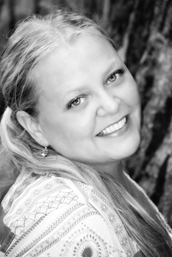Though I have respected Jim Carrey as a comedian and performer for many years, I would never have thought him to be a fount of cosmic wisdom. That is why, along with so many others, I was blown away by his commencement address at the MUM graduation. In his address, Carrey spoke of his father, on the importance of following one’s dreams, effecting others positively and choosing love over fear. For the full address, click here. If you don’t have the 26 minutes to spare right now, please click on the embedded video below (but do come back to the full speech later). It’s just a single minute of your time, so please do yourself the favor.
[youtube=https://www.youtube.com/watch?v=ajMpfPYlHi4]
When you seek to be a professional author, the odds are against you to an absurd degree. When I was in high school, trying to figure out who I was going to become for the next phase of my life, I had a choice. Either, I could pursue a career in science and technology, or I could develop my passion for writing and storytelling that had begun to grow on the fertile ground of my passion for reading. In the end and at the encouragement of those who loved me, I went to one of the top technical schools in the country and spent four and a half years earning a degree that has enriched my life. Upon graduating, I began working for an engineering company that is a respected leader and fierce competitor in their field. I had done it. People I knew, people who I cared about, told me how proud of me they were and how obviously successful I was.
And yet, I was unhappy. I was unfulfilled. There was a part of me, part of my talent that was being unexpressed and underutilized. It took me nearly 18 months to realize where the sense of discontent was coming from.
You see, though I was pursing highly technical studies in college, I also fed my creative urges regularly through live performance improvised comedy and table top role-playing. My life was grounded in reality through my studies, but I was still able to live in the fantastic. When I joined the working world, I had left that fantastic behind for many good and practical reasons. But, I still needed it.
It was when I started writing again, started reaching out to the community of writers and blogging regularly, that I began to find my contentment and happiness. This month has been all about goals, finding your own balance and managing your life when the deck seems stacked to overwhelm you.
Please take it from someone who has learned it the hard way. Fulfillment will never come from someone else. Instead, you must explore what you find to be fulfilling, what you love beyond all reason and pursue it. That said, the day job and the dream job do not have to be mutually exclusive.
I am an engineer. I am a writer. I am not one or the other, but rather both, simultaneously and always. Each part of my personality influences and informs the other, making it stronger and richer.
The problem I had, the source of my unhappiness and cognitive dissonance was the false assumption that I had to choose one or the other to be supreme. I was failing to achieve a work-life balance. Was that the fault of my company? After all they gave me a great deal of work to do that was time consuming and challenging. Of course not. I am, after all, employed by them. I was selling my time, knowledge and experience to them in exchange for a salary and benefits. Was the work exhausting and effecting my home life? Yes. But, what I chose to do with that home life was still entirely in my power.
This is the most important thing I’ve learned in my short career as an engineer. Saying you are “too busy” to do this or that is an expression of value, not of time constraints. Busyness is a choice. Time is a commodity, and like any other scarce resource, where we choose to spend our time indicates what we value. What you are actually saying when you are “too busy” to do some task is what you are doing now is more valuable than the proposed activity. Claiming to be too busy to write because of my job was in reality saying that I chose things like working, sleep, watching TV, going out with friends, exercise and other leisure was more valuable than the time I could spend writing.
So, what did I do? I began to choose how I spent my time more wisely and learned to say “no.” Not only to others but to myself. I canceled my television package, Netflix and Hulu+ accounts. I put away my gaming consoles and worked on stream lining the things I felt that I had to do to be more efficient.
And I wrote. A few hours of new words here and there, a half hour of editing and a minutes of plotting and milieu development wherever I could find the time. I put my fingers on the keyboard because that is what I valued.
Life is complex and dynamic, so finding your balance isn’t a matter of setting up all the elements in stasis. Instead, you must constantly be shifting, reevaluating what you want and reallocating your immediate future to line up with your goals. Will you risk “wasting” your time on things that make you unhappy but are safe and easy, or will you instead pursue the less certain path? It takes honesty and self-awareness, but spending time wisely is a choice and a statement of value.
“You can fail at what you don’t want, so you might as well take a chance at doing what you love.” ~Jim Carrey, 2014 Commencement Address, MUM Graduation.


